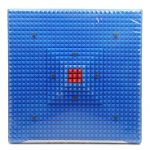The introduction of fair and inclusive technology assessments is a cornerstone from the pursuit of educational equity, looking to accurately measure the knowledge and also skills of all students in spite of their backgrounds. As academic environments become increasingly varied, the challenge of creating assessments that will serve a broad demographic with no bias intensifies. Educators in addition to assessment developers must think about a range of factors from articles relevance and language accessibility to cultural inclusivity and adaptive testing technologies.
https://phatwalletforums.com/user/frubber0
Fairness with science assessments begins together with the acknowledgment that students sourced from varied educational, cultural, as well as linguistic backgrounds. This assortment impacts not only their mastering but also their performance in standardized tests. Traditional assessment practices often fail to support these differences, leading to disparities in test outcomes that could influence academic and employment opportunities for underrepresented communities. To counteract this, examination designers are encouraged to integrate key points of fairness right from the planning stage. This involves collaborating with a diverse group of educators, college students, and community members to make certain test content is relevant as well as nondiscriminatory.
Language accessibility is really a critical aspect of inclusive assessments. Exams that are linguistically sophisticated or nuanced can negative aspect non-native speakers and students with limited proficiency inside the instruction language. Simplifying the particular language used in test issues without diluting the medical rigor can help bridge this kind of gap. It’s also beneficial to offer definitions for specialized language within the test or permit the employment of glossaries. Further, supplying assessments in multiple dialects, where feasible, ensures that scholars can demonstrate their information without language barriers effecting their performance.
Cultural inclusivity is another vital component. Analyze items should be culturally basic or include a balanced rendering of various cultures to avoid biases that might favor one team over another. This can be obtained by avoiding culturally certain analogies or references in which not all students might know or relate to. Moreover, concerning cultural consultants during the query development phase can provide information into subtle biases which may otherwise go unnoticed.
Typically the format of the assessments also plays a significant role inside inclusivity. While multiple-choice issues are common, they may not always function as a best method for all students to demonstrate their understanding. Alternative evaluation methods, such as open-ended responses, portfolios, and practical findings, can provide students with different strategies to express their scientific reason and procedural skills. These formats can also be more moving and might encourage a deeper understanding of the material, benefiting just about all students but especially those who might struggle with traditional assessment formats.
Technological advancements possess paved the way for adaptable testing, where the difficulty from the test is adjusted based on the student’s performance as they advancement through the assessment. This type of examining can more accurately measure advantage of students at both ends of the academic selection, providing a fairer and more personal assessment experience. However , care must be taken to ensure that the particular algorithms driving these tests are free from biases that could perpetuate disparities.
Ensuring fairness and inclusivity in research assessments also requires nonstop review and feedback. This should involve analyzing assessment data to identify any patterns of disparity among different scholar groups and making improvements to the assessment practices as necessary. Regular feedback from each students and educators can provide practical insights into the perceived fairness and accessibility in the tests.
The stakes usually are high in educational assessments as they often determine future informative pathways and career chances. As such, the commitment to developing fair and are often times science assessments is not basically an academic concern however a broader social liability. Striving for equity in education through fair tests practices reflects a commitment to help giving every student opportunities to succeed and to fostering some sort of society where merit and variety are truly celebrated. By means of adhering to these best practices, school staff and policymakers can contribute to a more equitable educational surroundings, where every student has got the tools to reach their potential.



